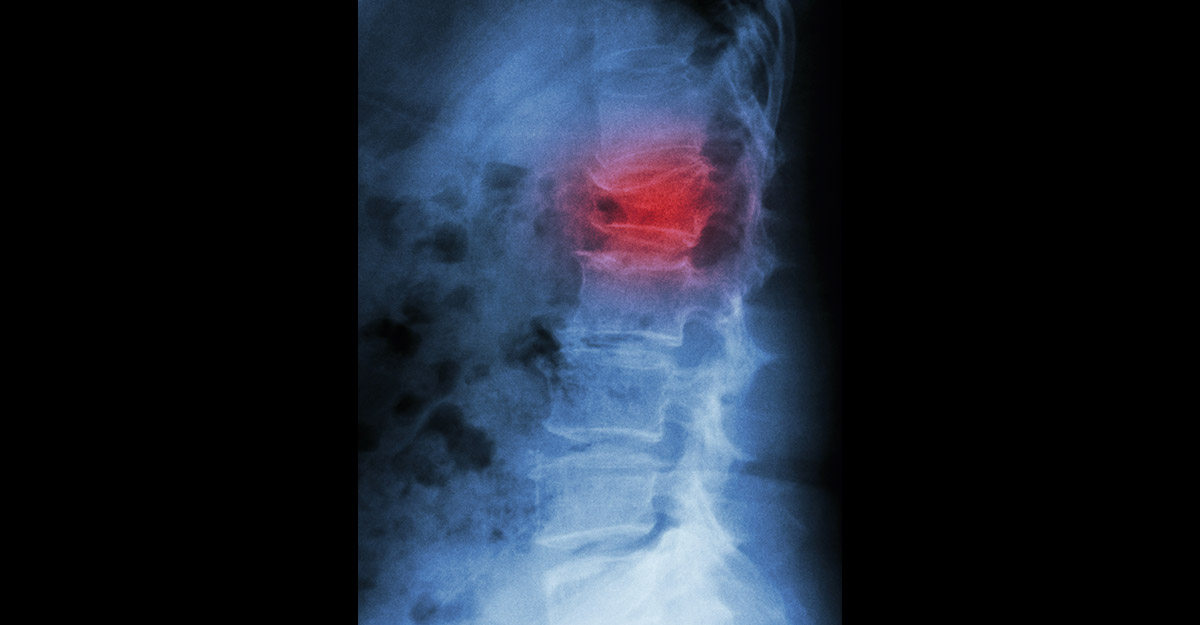
Vertebral Compression Fractures
Vertebral compression fractures (VCFs) affect more than 700,000 Americans annually, and are the most common complication of osteoporosis. Fracture risk increases with age, with four in 10 white women older than 50 years experiencing a hip, spine, or vertebral fracture in their lifetime. Also at high risk for VCF are people with cancer that has spread to their bones.
VCFs can lead to chronic pain, disfigurement, height loss, impaired activities of daily living, increased risk of pressure sores, pneumonia, and psychological distress. Patients with an acute VCF may report the abrupt onset of back pain with position changes, coughing, sneezing, or lifting. More than two-thirds of patients are asymptomatic and diagnosed incidentally on plain radiography.
Acute VCFs may be treated with analgesics such as acetaminophen, nonsteroidal anti-inflammatory drugs, narcotics, and calcitonin. Other conservative therapeutic options include limited bed rest, bracing, physical therapy, nerve root blocks, and epidural injections.










